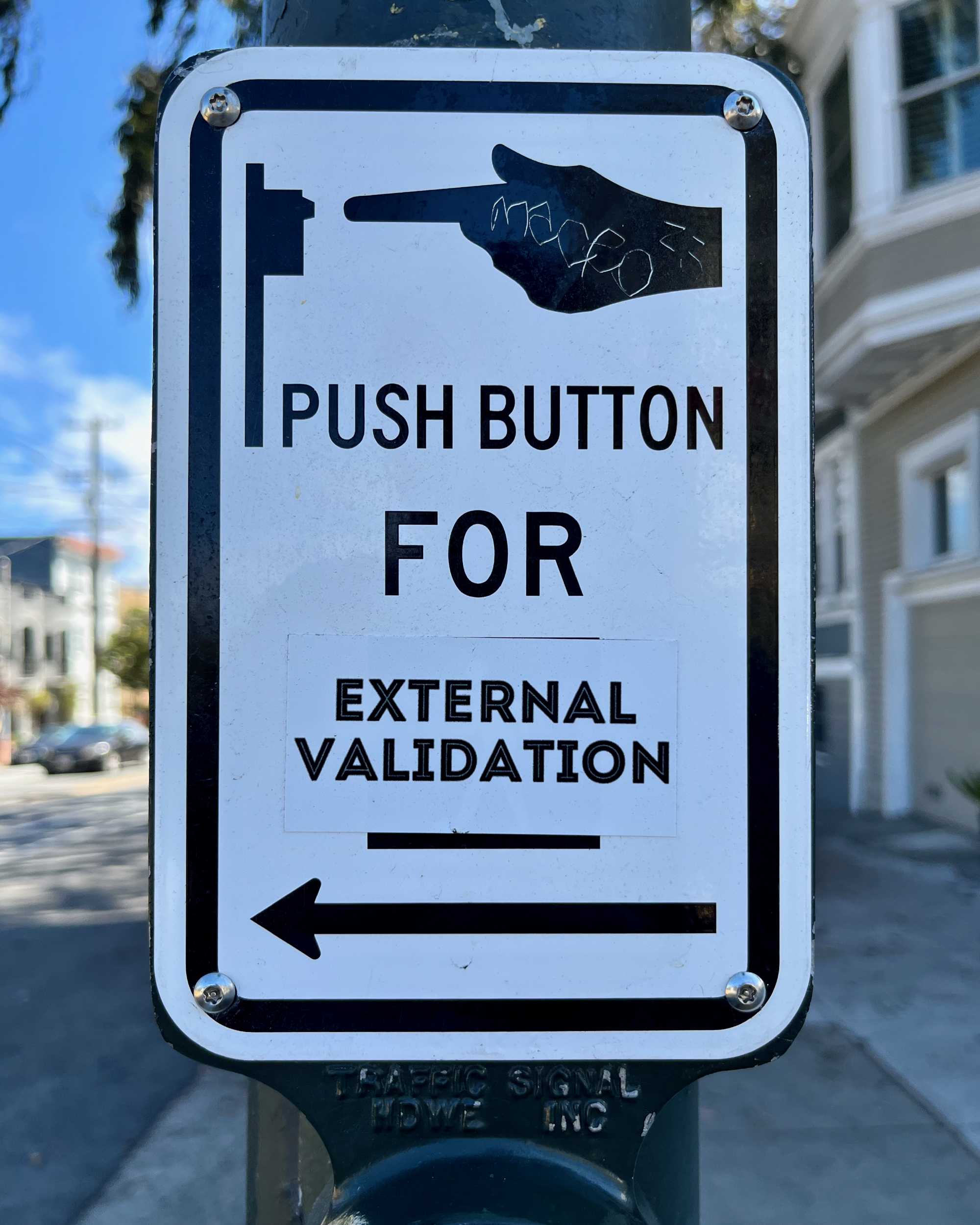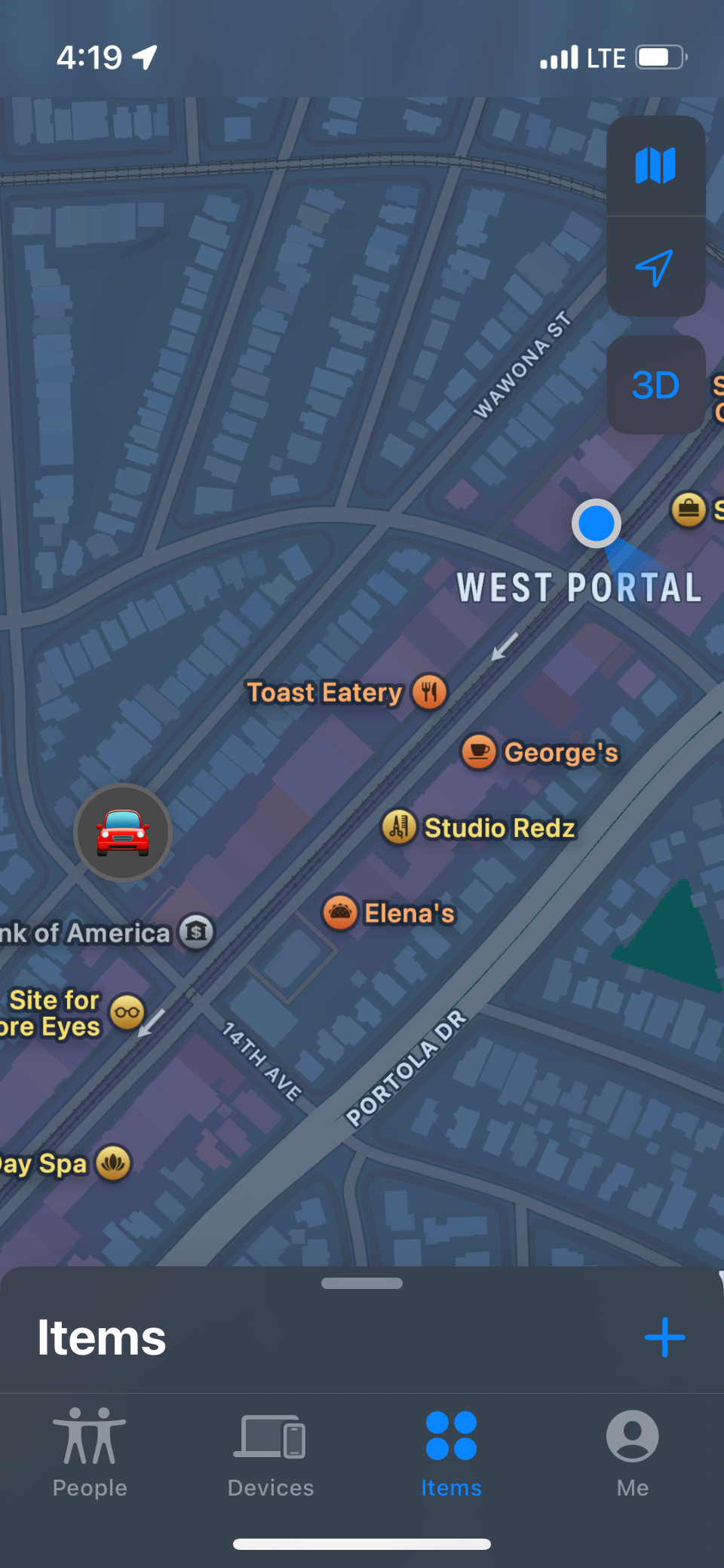
Stearns Wharf, Santa Barbara, December 2025.

Stearns Wharf, Santa Barbara, December 2025.
I read 30 books in 2024 (yes, I realize it is late 2025). Below are some brief remarks about my favorites along with the full list.
Die with Zero: Getting All You Can from Your Money and Your Life, Bill Perkins
I picked up this book after reading Tom MacWright’s review of it. The author is a hedge fund trader worth over $100 million and the advice is solidly targeted at the wealthy, so this book is not for everyone. Perkins pays lip service to people who can’t afford to retire, but the book is primarily a corrective aimed at those who can and do accumulate wealth their whole lives. Perkins says many people increase their net worth their entire lives, even after retiring due to the power of compound interest.

Perkins considers this a bad idea because you’re leaving money on the table that you could have used to build a memorable life. Instead, your goal should be to maximize life experiences by spending more money earlier, when you’re young and healthy enough for adventure.

But what about passing on a legacy to your children or grandchildren? If this is important to you, Perkins says you should give it to them now. With many wealthy people living into their 80s, their children are practically retired themselves by the time they inherit. I’m not expecting an inheritance, but this argument resonated with me. Probably, getting $100,000 when I was 30 would haven been more useful than getting $1,000,000 at age 60. I’m going to keep this in mind for my own kids.
The strongest counterargument to this book is simply that life is uncertain. You can estimate your accumulation with historic market returns and make deaccumulation plans based on simple models, but the stock market is uncertain and an ill-timed downturn can wreck your returns for a decade. While researching this post, I came across Edward McQuarrie’s paper How the 4% rule would have failed in the 1960s: On the folly of fixed withdrawal rates which shows the often-recommended 4% withdrawal rate is not reliable. Running out of money before you die is a disaster for most people. Considering the downside risk, maybe “die with almost zero” is a better goal? (Perkins says you should by an annuity to handle that.)
This book is for over-savers. If you read any FIRE content, you’ll come across posts from people who have millions in assets and a high paying job they hate. The could stop working, but they’re afraid to. Perkins is telling them to live now. That’s why I’m glad I read this book. My own life experiences have biased me towards saving. My family was never precarious, but we didn’t have a ton of extra money when I was growing up. As a teenager, one of my most vivid financial memories was my dad, then in his 40s, writing the final check for his student loan payments. I graduated college in the teeth of the dotcom crash, which affected my income for years. Then we made an ill-timed condo purchase just before the 2008 real estate crash that kept us feeling trapped. This book helped me see another side to wealth and how you can use it to shape your life.
Aurora, Kim Stanley Robinson
I sort of hated this book, but I could not stop thinking about it. It falls into the subgenre of stories about multi-generational interstellar colonization (like Rendezvous with Rama and many others), but the twist is that generation ships and space colonization are terrible ideas doomed to failure. This is because microorganisms evolve faster than larger animals, so in the isolated environment of the starship, humans and the other animals will not be able to keep up with bacteria. The environment will get out of balance and ultimately collapse. He also suggests humans and the animal passengers will be subjected to the island effect and start degrading. I think his logic is pretty sound!
When the colonists finally make it to Tau Ceti, they face a new problem. It turns out that anywhere life can evolve, it does, and it is inevitably hostile to Earth life. Planets are either dead, in which case terraforming will take so long that the Earth life will die out before it finishes; or alive, in which case the native life will be poisonous to Earth life. This argument seems more questionable to me; I don’t see why alien life would be inevitably poisonous to Earth life.
Robinson wrote the book in response to the ideology that humanity must spread itself throughout the galaxy. For Robinson, this is a cruel fantasy to escape the ecological destruction of Earth: there is no Planet B. This really becomes apparent in the final part of the novel when one of the survivors is mansplained to by a pro-colonization spacebro who seems suspiciously like Elon Musk (she tries to throttle him).
This book really stuck with me and presents a serious critique of space colonization (for a shorter version, check out the article Robinson wrote for Scientific American which presents a summary of his argument). There were a few things I found iffy. Probably the biggest issue with the book is that Robinson wants his characters to survive the return journey, so he invents a magical hibernation sleep that allows them to return. Such technology is a staple in science fiction and would greatly improve the survivability of an interstellar trip. (The spacebros back on Earth immediately seize on this to re-start the stalled colonization efforts, which is pretty funny.) The other thing I found objectionable is that magical nanotechnology and autonomous AI exist, but is not used to pave the way for humans in the target system. A swarm of nanofactories could have gotten to Tau Ceti a lot faster than the generation starship and I see no reason why it couldn’t have started building a habitat, station, or even begun terraforming one of the planets. Finally, the best character dies (no spoilers).
If you liked this book, you may enjoy these critical essays about it. Envisioning Starflight Failing by Gregory Benford critiques the various plot fixes that deal the colonists an impossible hand. A Science Critique of Aurora by Kim Stanley Robinson by Stephen Baxter, James Benford and Joseph Miller discusses the science of the novel. One of their main conclusions is that the propulsion system is implausible, which, if anything, makes Robinson’s argument that interstellar colonization is impossible stronger.
Right Ho, Jeeves, P. D. Wodehouse
I’ve heard a lot of recommendations for Wodehouse over the years, but this is the first book of his I’ve read. I really enjoyed it! In this book, the bumbling narrator tries his hand at solving the interpersonal relationship problems of his friends and relatives because he’s jealous of people seeking the assistance of his servant Jeeves rather than himself. Naturally, he causes disaster after disaster until Jeeves concocts a plan to get him out of the way and patch things up. This is a low-stakes humor novel but quite a fun read.
Downbelow Station, C. J. Cherryh
While visiting Portland in 2024, the house we stayed in had copies of two of my favorite science fiction books: The Anubis Gates and Downbelow Station. I hadn’t read Downbelow Station in probably 20 years, so I decided to re-read it.
I love the Alliance-Union universe, and I think this is the best book to start reading. It has Cherryh’s signature “intense third person” style that drops you into the world, but the plot is accessible and exciting. It’s also a lot shorter than, say, Cyteen. That said, this is a dense book. There are many point of view characters from several different factions and it drops you right in the middle of the action, as the Company War is winding down (not unlike the Iliad, though we do get a preface describing the first few hundred years of space colonization). It’s a space opera, but fairly realistic one. The stations are intensely vulnerable and easily destroyed by attacks or riots. But they are also valuable, especially Downbelow, which orbits one of only three known living worlds.
It’s a shame Cherryh isn’t more popular today. I think Downbelow Station and the Company Wars would make an awesome movie or miniseries. I first read Cherryh as a teenager, and she remains one of my favorite science fiction authors. Like real history, the stories she tells in her novels fit together in a jangled way, with a reference here, a connection there. When I read one, I get to thinking about how the whole universe fits together. I love puzzling it out. This isn’t for everyone, but I love it.
Jumping Jenny, Anthony Berkeley
All right, I’ll admit that I grabbed this off the shelf because my wife’s name is Jenny (it turns out the title is a riff on slang for a hanged man). I had never read anything by Berkeley. This book is a cozy mystery featuring one of his recurring characters, Roger Sheringham. Sheringham is an amateur detective, so when someone who plenty of people have a reason to want dead ends up hanged at a party, he notices a key clue that indicates she didn’t kill herself…and fixes it to avoid suspicion on his friends. This causes problems when the police start investigating, especially because his alibi is the weakest of anyone at the party. This is an inverted mystery. We see the murder take place and know who committed it. Sheringham has to try to figure it out in order to protect his friend…and himself. However, there’s a hilarious and shocking twist at the end, which I was not expecting because we saw the crime take place.
Kate Jackson has two reviews of this book on her blog Cross Examining Crime if you’re interested in learning more.
Iliad, Homer (translated by Stanley Lombardo)
During the pandemic, I started listening to Literature and History, an ambitious survey of literature starting with the invention of writing. I was captivated by the three episodes about the Iliad (Glittering Bronze Men, Homer’s Gods, and Who Was Homer?) and decided to read it for myself.
I chose Stanley Lombardo’s 1997 translation, one of the translations used on the show. Lombardo refine his version through public performance (here’s a video of him reading accompanied by a drum). It’s a little bit anachronistic; he also cut some of the repetition surrounding the Homeric smilies and epithets, which he felt was not necessary in English. I enjoyed Lombardo’s translation and recommend it, but I also want to check out some other versions in the future.
This is a story that sears itself in your memory. I think what is most striking about the Iliad is how it subverts your expectations. It is told from the Greek perspective and they are the ultimate victors, but the Trojans are usually more sympathetic (I previously wrote about the touching scene between doomed Hector and his wife). A Homeric hero is heroic because they are exceptional, not because they are good. Achilles is at once hubristic, a cultured musician, and the best warrior. The Iliad contains both touching scenes of friendship and anatomically correct descriptions of gruesome violence:
Meges took out Pedaeus, Antenor’s son.
Though he was a bastard, Theano raised him
As one of her own, to please her husband.
Now Meges got close enough to him
To send his spear through the tendon
At the back of the neck and on into his mouth,
Cutting away the tongue at its root. He fell
into the dust, his teeth clenched on cold bronze. (5.78-85)
The violence of the poem is offset by similes that take us away from the action for a moment, often to a scene from the natural world. Many of these similes liken warriors to lions rending prey, but others are strangely peaceful.
But the Trojan had great notions that night,
Sitting on the bridge of war by their watchfires.Stars: crowds of them in the sky, sharp
In the moonglow when the wind falls
And all the cliffs and hills and peaks
Stand out and the air shears down
From heaven, and all the stars are visible
And the watching shepherd smiles.So the bonfires between the Greek ships
And the banks of the Xanthus, burning
On the plain before Ilion. (8.563-573)
The Iliad is still powerful after nearly 3000 years. We don’t have many other complete texts of that vintage. What we do have is fascinating and moving in its own right, but feel stilted and wooden compared to the Iliad. As Doug Metzger put it, “the Iliad seems like a meteor, so much more advanced in characterization, consistency, complexity of plot, and the spellbinding beauty of its language than anything else that preceded it that it almost seems to have dropped to earth from another galaxy, alien and celestial in its nearly absolute perfection.”
My full list of books from 2024 is below. You can also review lists from previous years: 2006, 2007, 2008 (retroactive favorites), 2009 (retroactive favorites), 2010 (retroactive favorites), 2011 (favorites), 2012, 2013, 2014, 2015, 2016, 2017, 2018, 2019, 2020, 2021, 2022, and 2023.
The Dead Mountaineer’s Inn, Boris and Arkady Strugatsky (translated by Josh Billings)
Die with Zero: Getting All You Can from Your Money and Your Life, Bill Perkins
84, Charing Cross Road, Helene Hanff
The Adventures of Ibn Battuta: A Muslim Traveler of the 14th Century, Ross E. Dunn
The Road to Roswell, Connie Willis
A Kidnapped West: The Tragedy of Central Europe, Milan Kundera
Watership Down: The Graphic Novel, Richard Adams (adapted by James Sturm, illustrated by Joe Sutphin)
The Hunt for Vulcan…And How Albert Einstein Destroyed a Planey, Discovered Relativity, and Deciphered the Universe, Thomas Levenson
1941: The Year Germany Lost the War, Andrew Nagorski
Aurora, Kim Stanley Robinson
Big Meg: The Story of the Largest and Most Mysterious Predator that Ever Lived, Tim Flannery and Emma Flannery
Billion Dollar Loser: The Epic Rise and Spectacular Fall of Adam Neumann and WeWork, Reeves Wiedeman
Silver Nitrate, Silvia Moreno-Garcia
Untethered Sky, Fonda Lee
Please Report Your Bug Here, Josh Riedel
Translation State, Ann Leckie
Eversion, Alastair Reynolds
The Surrogates, Robert Venditti and Brett Weldele
Machine Vendetta, Alastair Reynolds
The Man Who Solved the Market, Gregory Zuckerman
Right Ho, Jeeves, P. G. Wodehouse
Downbelow Station, C. J. Cherryh
Changing Planes, Ursula K. Le Guin
A Night in the Lonesome October, Roger Zelazny
Blindsight, Peter Watts
Jumping Jenny, Anthony Berkeley
Prosper’s Demon, K. J. Parker
Tripoint, C. J. Cherryh
Slow Productivity: The Lost Art of Accomplishment Without Burnout, Cal Newport
Iliad, Homer (translated by Stanley Lombardo)

Noe Valley, San Francisco, August 2025
I got a email from a recruiter at a major technology company that explained why they were interested in me:
Hello Luke,
I hope all is well! I am part of the leadership team here at [Company], focusing on hiring leaders for key areas such as Gen AI, Monetization, and Core Infra.
I’ve taken a close look at your background and some highlights include:
Staff Engineer with Deep Search Systems Experience and End-to-End Ownership
At GitHub, you’ve led development on critical parts of Code Search across the stack — from document ingest in Go and backend services in Rust, to React frontend components and system instrumentation. You’ve re-architected services out of the monolith for major cost savings and built experimental platforms using Kafka and Elasticsearch. That kind of full-stack ownership and large-scale system thinking aligns directly with the kinds of challenges [Company] faces in Search Infra, Integrity, and Ranking.
Proven Builder with Startup Hustle and Broad Platform Versatility
From co-founding YC-backed FanChatter and launching jumbotron-powered photo apps, to building data platforms at Premise and leading critical infrastructure at Swiftype, you’ve shown repeated impact across backend search, observability, and product engineering. One recommender put it simply: “If I had the luxury of building a dev team from scratch, Luke is one of the first people I’d call.” That blend of technical depth, startup initiative, and platform reliability is exactly what [Company] seeks in Staff-level engineers.
It took me a second to realize why this email seemed so weird. It was rephrasing things I wrote for my LinkedIn profile. On LinkedIn, I try to summarize my professional experience in a way that (hopefully) makes me seem like a strong engineer. This LLM rephrasing of my resume isn’t a hallucination – it all comes from things I wrote – but seeing it rewritten like this is weird, like a case of déjà vu.

Salmon migration, Ballard Locks fish ladder, Seattle (September 2025)
Charity Majors:
Every job I’ve ever taken, I knew within the first week whether it was right for me or not. That might be overstating things a bit (memory can be like that). But I definitely had a strong visceral reaction to the company within days after starting, and the rest of my tenure played out more or less congruent with that reaction.
This has been true for me, too. I always try to get a sense of what a company will be like during the interview, but sometimes the impression isn’t accurate. Once, I took a job that seemed interesting. By the end of the first day, I knew it was a bad fit. I tried to give it some time, but my first impression was right.

My kid wanted to see pictures of parakeets, so I pulled up the Wikipedia page to look through the photos. When we got to this one, they said “That’s a handsome parakeet.”
In The Middle Kingdoms Martyn Rady writes about the development of state capacity in Central Europe in the nineteenth century. In France, Britain, and the United States the presumption of the law favored the citizen: what is not forbidden is allowed. In Central Europe, it was the opposite. Governments and bureaucracies could govern by decree where the law was silent through “administrative discretion” (freie Verwaltung). This created a very powerful administrative state.
In the twentieth century that administrative state was used for mass murder. Rady writes about one of the most messed up things I’ve ever read about the Holocaust:
The administration of the railways is illustrative of the bureaucratic ethos that made murder possible. Some two thousand trains belonging to German Reich Railways (Deutsche Reichsbahn) conveyed about three million Jews to their deaths. Each train had to be separately commissioned and paid for by Himmler’s staff according to passenger numbers. The rate was based on second-class fares (even though the passengers were crammed into wagons) and worked out according to kilometre distance. The railway administration charged Himmler’s office half fare for children under ten, and those under four went for free. Trains with more than four hundred people qualified as holiday excursions and were eligible for further reductions. Only the guards were counted as return fares.
Did you know fonts can include arbitrary code to shape text? I didn’t.
In particular, this “arbitrary” code could in principle be an entire LLM inference engine with trained parameters bundled inside, relying on treating text containing magic symbols for fake “ligatures” to initialize the LLM and use it to generate text.
Hats off for an amazing hack.
We have two drivers, one car, and zero parking spaces. That means hunting for street parking in our assigned residential parking zone. This can be difficult, because state law prevents charging based on demand and there’s no limit on the number of permits issued. At $16 per month for 200 square feet, this is the cheapest rent in San Francisco.
Since it can be hard to find parking and there are two of us putting the car wherever we can find a spot, sometimes one person will park the car and the other person won’t know where it is when they need to use it. I realized we could use a shared AirTag to solve the problem. Here’s what it looks like:

It works pretty well. The only problem I’ve found is that when we’re lucky enough to park in front of our apartment, Find My thinks the item is with you. But given that I can see the car in that case, it’s not a big downside.